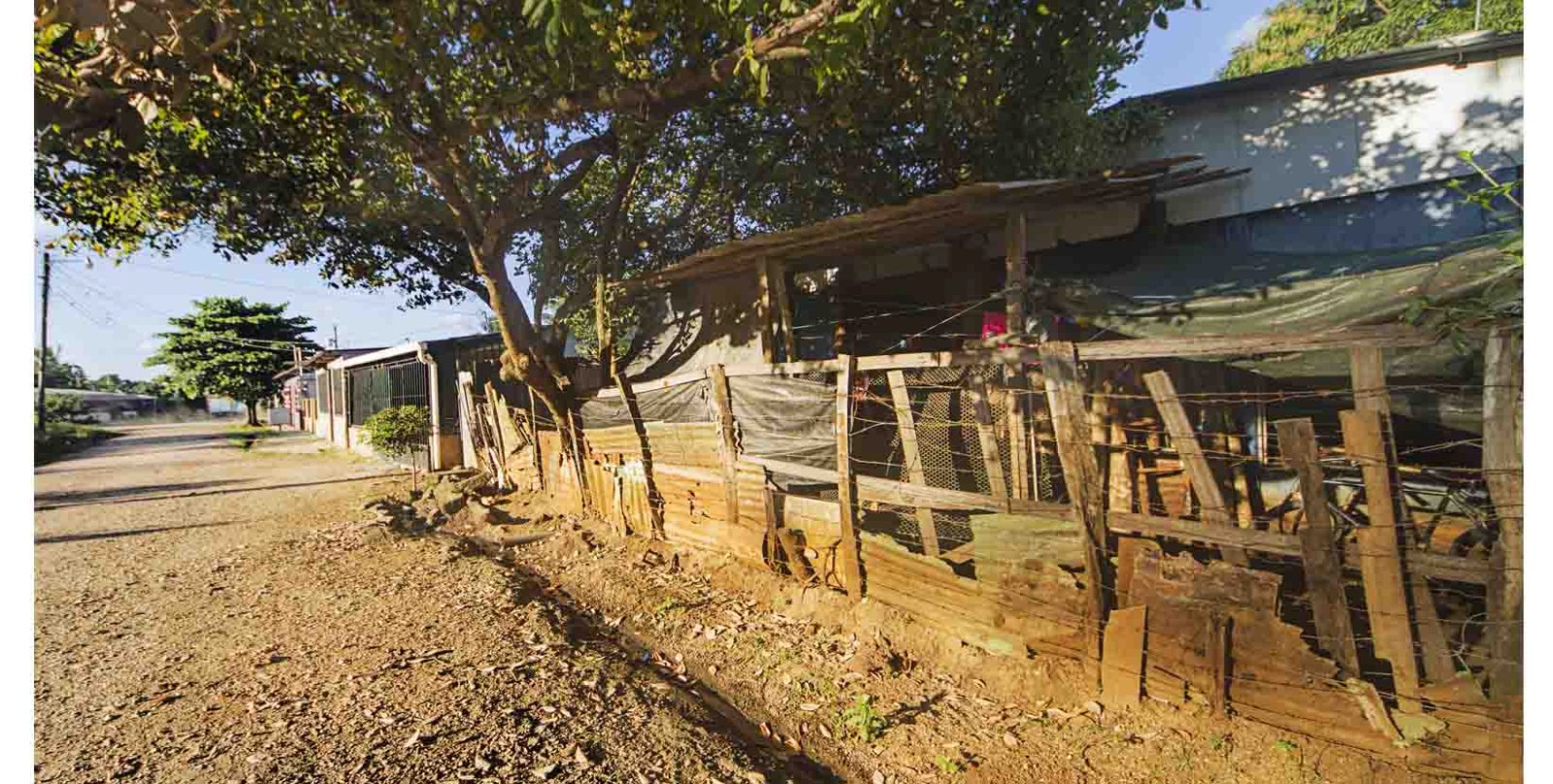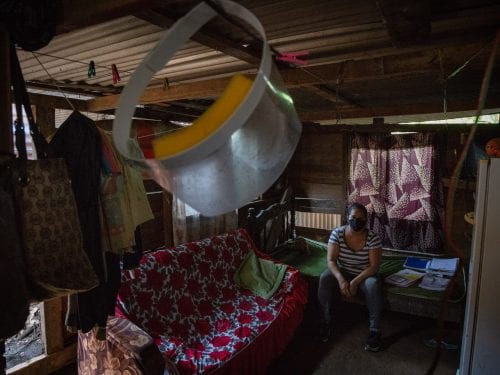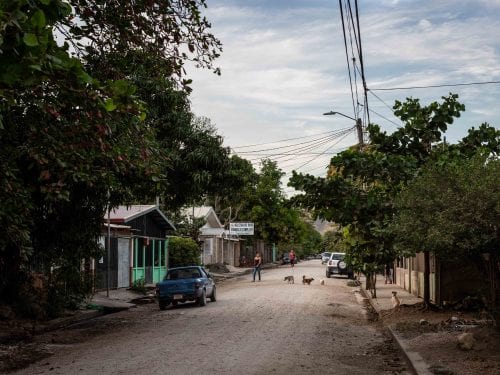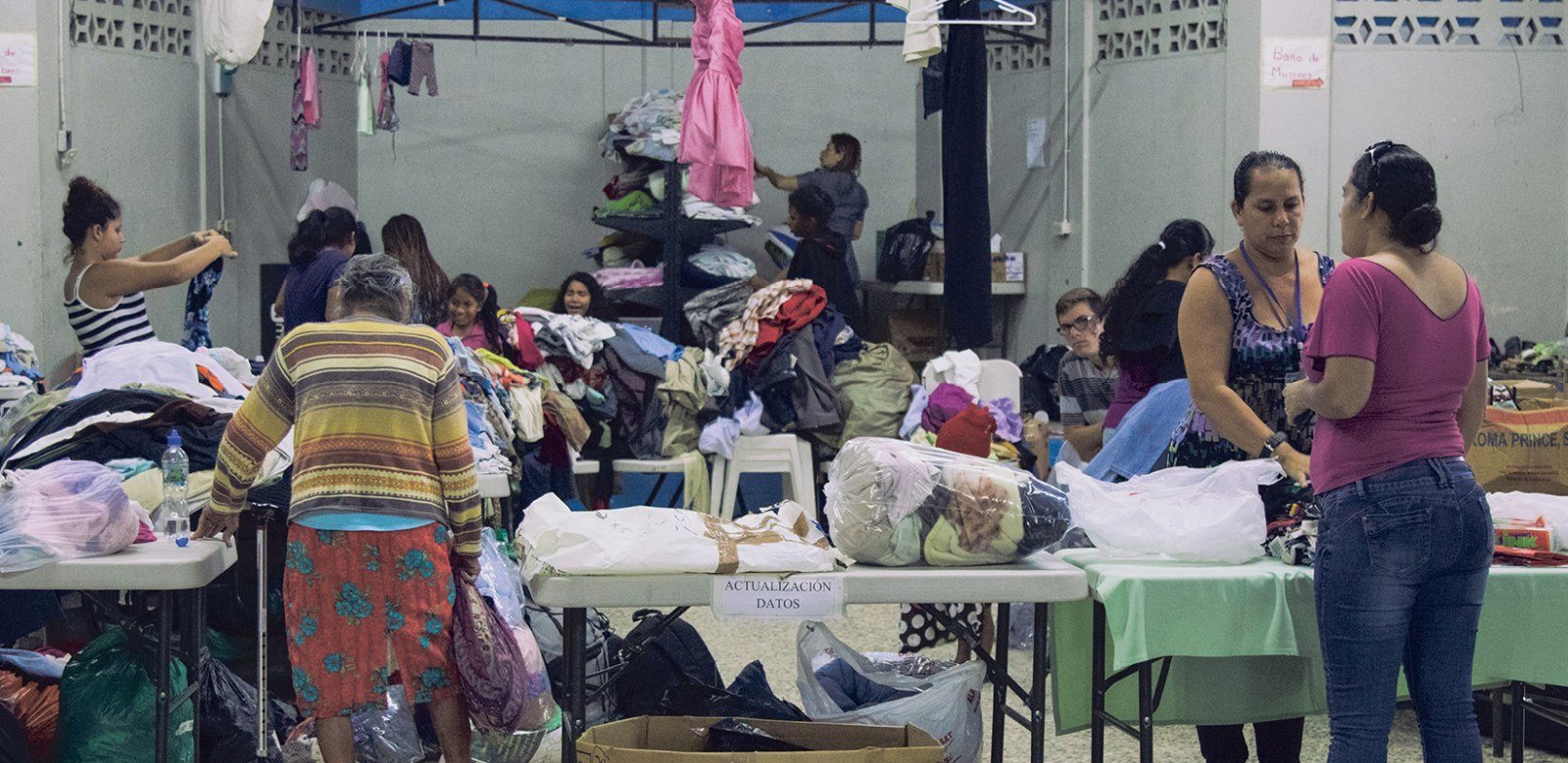
Neighbors of an urban development in San Martin of Nicoya are collecting signatures to petition for an extension to pay off their loans and hopefully delay or avoid being evicted from their homes.
About 80 houses were built some 20 years ago with financial bonuses of 1.3 million colones ($2600) from the National Institute of Housing and Urbanization (INVU- Instituto Nacional de Vivienda y Urbanismo), and those receiving the assistance were required to make payments of small amounts, for example 3300 colones ($6.60) per month, depending on their salaries. However, the majority of the homeowners failed to make the required payments, although some have made partial payments and only about 15 have paid in full.
For the past four years, the neighbors have received notifications from the collections department of INVU by phone and in writing that they need to pay or face eviction, but many of the homeowners are women who are unemployed or struggling to support their families.
Xiomara Espinoza Castillo is one of the few who has made full payment to INVU, but she is a single mother and has been struggling to save enough money to get a plan drawn up for titling the lot. “Maybe you have money to pay the water but not the electricity or not to buy food,” she related. Although time has passed since neighbors received notifications from INVU and they continue living in their houses, Espinoza Castillo said, “There is now a feeling that at any moment they could evict us.”
To complicate matters, the property on which the houses were built remains registered as one big lot so all of the houses would be repossessed for auction together, making it a problem that involves all of the neighbors, including those who have paid their loan but have not taken the steps to individually title their lots once they finished making their payments.
During their campaign, politicians from the National Advancement (Avance Nacional) party offered to help the group, upon the request of Espinoza Castillo, who had met legislative candidate Gerardo Brenes a year before through a friend. Espinoza asked Brenes what he, as a politician, could do to help them. Brenes presented the case to presidential candidate Jose Manuel Echandi, who in turn, decided to offer the party’s assistance and personally went to INVU to inquire about the case, learning that it might be possible to settle the matter through administrative procedures.
If matters aren’t able to be resolved administratively, Elky Rizo, a lawyer who was the second legislative candidate for Guanacaste for National Advancement, offered to file an appeal for legal protection on their behalf free of charge if they collect the signatures of all of the owners of the houses. However, they are still waiting for an answer from INVU. “In theory they still aren’t going to proceed [with evictions],” Rizo said. “The board of directors of INVU has to resolve it.”
Rizo noted that some of the neighbors have made excuses for not paying, such as things that were built badly or simply not having money to make the payments, although some of the owners are actually renting the houses out and others have made repairs or improvements to their houses. In light of this, she strongly cautioned the neighbors that INVU is a private entity and that their time limit has passed for paying. Rizo encouraged them to organize fundraisers such as food sales to raise funds to make payments and title their lots.
Espinoza Castillo explains that if repairs have been made to a house, it is because the material was given to them free. “If it has a floor with different types of ceramic, it isn’t because you have money. It’s because they are leftovers that they have given me because I’ve done jobs,” she commented.
VON contacted the press department of INVU to inquire about the status of the San Martin housing development. Zaida Jimenez, in charge of the press department, said that the director of collections is investigating the case and assured that they are trying to look for a solution so the people don’t lose their houses.







Comments